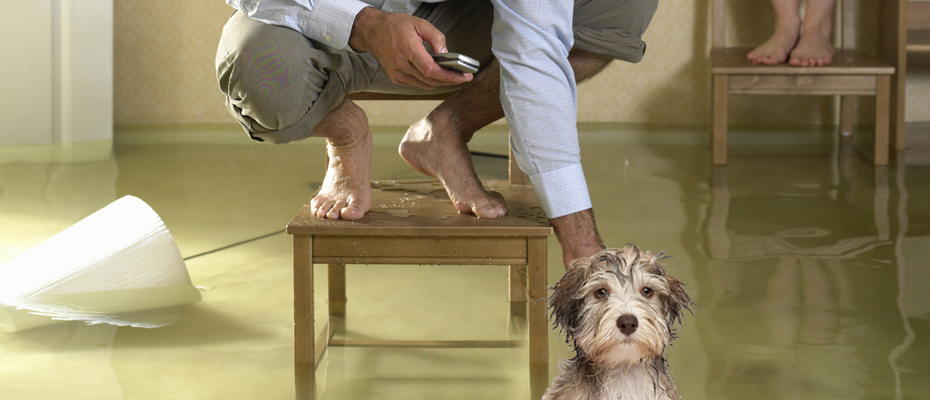The US has experienced flooding on an unprecedented scale within the last year, from the soggy midwestern states (including Nebraska, South Dakota, Iowa, and Kansas) to the wet consequences of near-constant hurricanes in the southeast.
While the climate of the Northeastern US has (so far) protected its states from the same fate, flooding isn’t an impossible reality — even in the vast cornfields of Ohio. The legalities of such an event are a bit confusing, especially where rental properties are concerned. Let’s tackle the question of responsibility when it comes to a flooded basement in a rental unit in the Buckeye State.
Logic vs. law
From a tenant’s perspective, a flooded basement has more to do with the property than the person living in it. However, the reality of the situation is not that simple.
When you rent a room, apartment, or home, you’ll often be expected to pay renter’s insurance, which covers a variety of problems. Although you’re guaranteed to be protected from incidents related to theft, fire, or vandalism, there are exclusions. Just like homeowner’s insurance, not everything is covered under one form of insurance.
Additional policies are offered to cover special events; in terms of flood coverage, the National Flood Insurance Program can guarantee that you get compensated for the loss of any items that were damaged as a result of excessive water, and they encourage homeowners and renters in all locations to invest in the insurance.
Statistically speaking, more than 20 percent of flood claims come from properties located in areas considered to be at low risk for flooding. The cost of your premium varies depending on your risk level, as well as the following:
- Year of building construction
- Building occupancy
- Number of floors
- The location of your contents
- The flood risk (i.e. flood zone)
- The location of the lowest floor in relation to the elevation requirement on the flood map (in newer buildings only)
- The deductible you choose and the amount of coverage
Your landlord may take advantage of a number of tools that allow them to do their jobs better, such as the innovative tenant management system Turbo Tenant. But at the end of the day, you are responsible for protecting yourself from the financial devastation caused by flooding.
That being said, general repairs fall under the responsibility of the property owner, which includes finding a basement repair company in Ohio. You may lose valuable items, but it is the duty of your landlord to ensure that the basement is safe to use.
Take care of yourself
When it comes to finding a basement repair company, preparation is key. By getting ahead of the situation and ensuring you have flood insurance, you’ll never have to worry about the consequences of a sudden rainstorm, fast snowmelt, or burst water pipes. It may take a little extra money out of your pocket every year, but protection is well worth the cost.
The same goes for landlords and property owners. The cost of repairing water damage is often exorbitant (and may even extend beyond the initial devastation if mold or mildew take hold), but it can be avoided if action is taken immediately.
The City of Columbus recommends you do your best to dry and clean (using a solution of eight tablespoons of liquid chlorine bleach to one gallon of water) all surfaces that come into contact with water. This includes concrete and brick walls, floors, and any other washable materials.
